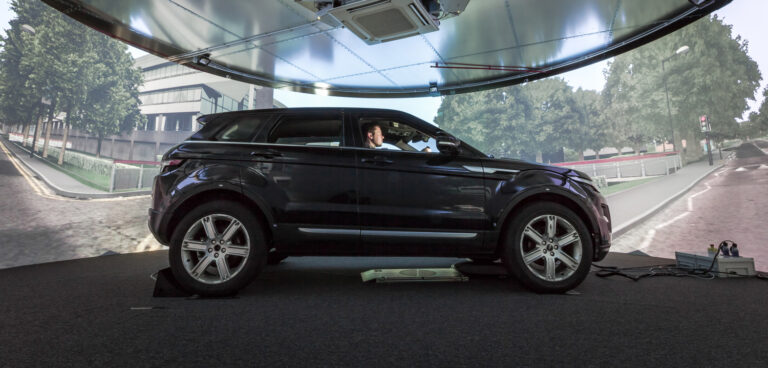The UK government is funding a £2.7m (US$3.4m) research project to support the creation of more intelligent virtual reality road environments to test autonomous vehicles.
Led by UK-based company Latent Logic, the project is a consortium of 11 organizations comprising AV companies, research agencies, government bodies and WMG at the University of Warwick.
The aim of the project is to create a highly accurate virtual reality simulator environment that will also be populated by artificially intelligent pedestrians and other road users to help yield more realistic testing of connected and autonomous vehicles.
The simulator will be created by OmniCAV, and will be provided with detailed scans of real roads, traffic camera data, accident data, and near-miss analyses to produce a high-fidelity model that will be an open-access library of VR scenarios for AV testing.
“OmniCAV’s vision is ‘CAVs for All’: bringing safer, smarter, self-driving mobility to urban and rural areas. But first we need to know that driverless cars really can handle our challenging road conditions, on country lanes as much as crowded city streets,” said Kirsty Lloyd-Jukes, CEO of Latent Logic.
“Virtual reality ‘driving tests’ are the only way of doing this, which is why we’ve brought together these 11 leading organizations to build a world-first, AI-based simulation of real Oxfordshire roads to securely and reliably test autonomous car safety.”
Latent Logic, formally Morpheus Labs, is a spin-out of the award-winning computer sciences department at Oxford University.
“At WMG we have long believed that simulation will play a key role in testing and certification of CAVs. Our 3xD simulator provides a platform with which to bridge the virtual world and real world and since its commissioning in 2016 has played a vital role in our research strategy. Scenario identification and virtual validation are still major challenges for the CAV industry,” said professor Paul Jennings, head of intelligent vehicles at WMG.


